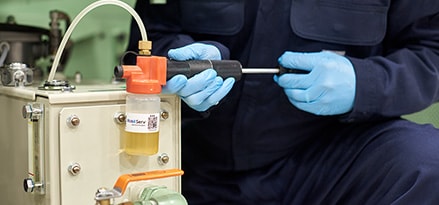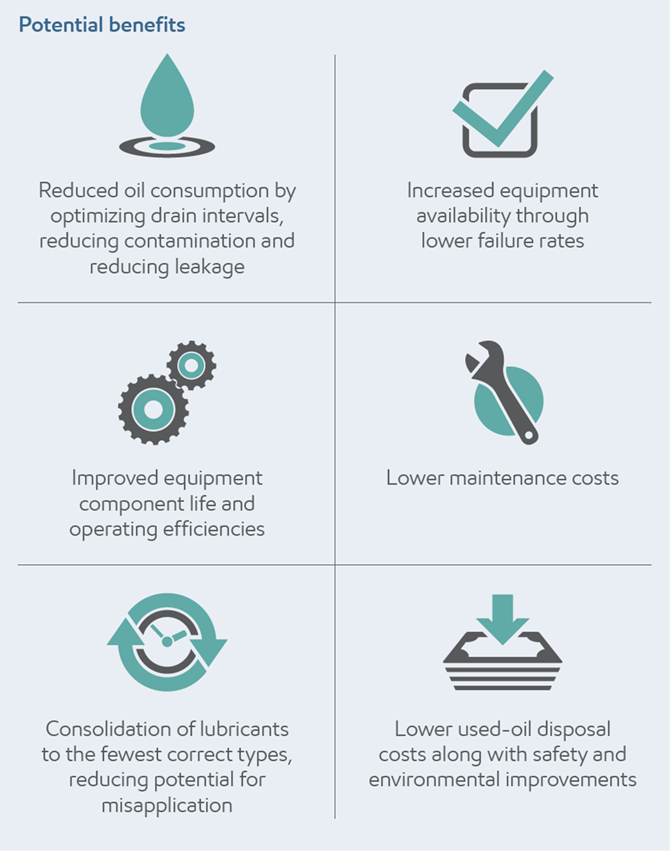Contamination control study

Engineers inspect your systems and, where needed, provide analysis and feedback for improving operating conditions.
Description
Our expert engineers will inspect critical equipment systems for abnormal operating conditions and secure oil samples for evaluation of on-site conditions. Then, they will submit the samples for detailed laboratory analysis (where required) and provide immediate recommendations to improve operating conditions (where needed). Finally, they will provide linkage to other condition-monitoring programs, such as leakage control, drain interval optimization and filtration.
Application
We work with you to:
- Conduct contamination control inspections without disrupting operations
- Establish inspection schedules based on need and criticality of the equipment
- Note normal and abnormal operating conditions
- Identify units in immediate need of corrective actions
- Recommend portable filtration, reclamation or change-out and flushing where appropriate
- Help identify systems with excessive oil makeup requirements
- Correlate current contamination control results with previous data
- Consult on correction of system conditions
- Report inspection results and a prioritized list of recommended corrective actions
Deliverable: An Engineering Service Report documents the findings from the contamination control study. It includes an assessment of the systems inspected, results of the lubrication samples analyzed and recommended actions to address the contamination. It also documents the value of the service and of implementing recommended corrective actions.
Common opportunity areas
- Contaminated lubricant (solvents, wrong oils, water, dirt, metalworking fluids)
- Temperatures too high or too low
- Aeration of oil (foaming)
- Pressures too high (hydraulics)
- Restriction in pump suction (cavitation/aeration)
- Leakage rates too high/low oil levels
- Use of wrong lubricants
Safety, health and environment
Our field engineers are attuned to the hazards of handling, storing and using petroleum products. They strictly observe safety and environmental rules, as well as ExxonMobil and customer safety practices. They coordinate efforts through designated plant personnel verifying electrical and mechanical lockout and proper tagging prior to working on equipment, and providing recommendations to help reduce hazards.

